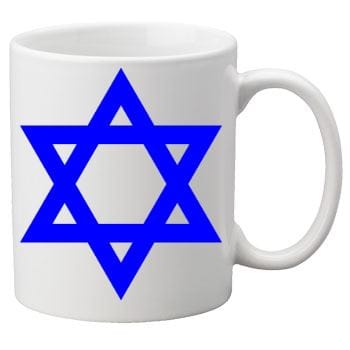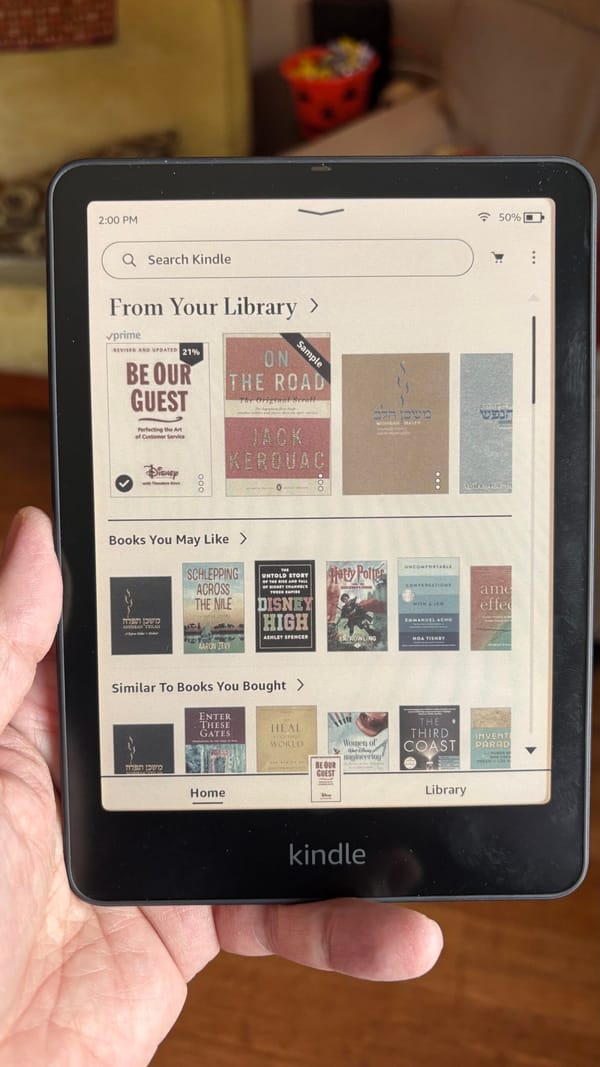I, Ruth: On Converts, Community, and Continuation
We are a wide, diverse, and ever-changing people of this covenant. We have a duty to respect each other's privacy. We have an equal duty to hear each other's stories. Most of all, we have a right to tell them.

On conversion day in 2011, I told my beit din that I believed there was a prophetic aspect to being a Jew-by-choice. Shortly before I began rabbinical school this week, my rabbi pointed out to me a saying from the Talmud:
gerim hador, edim hador
Converts in every generation tend to be the witnesses of that generation. In the past week I encountered a contrasting perspective suggesting that converts should be, essentially, silent about the fact that they are converts. So this isn't necessarily the post I originally intended to write.
Originally, I wanted to celebrate the continuation of the Ruth Roundtable, so let's do that first. Hurray! Last year, a friend from Hyde Park's KAM Isaiah Israel and I founded a discussion group for Jews-by-choice in the Chicago area. We named ourselves the Ruth Roundtable, after Judaism's most celebrated convert. At the time we didn't get very far. The Sunday immediately following Yom Kippur (four days ago as I write this), however, was another story. Half a dozen JBCs and folks on or considering Jewish journeys came together at a coffee shop in Chicago's Edgewater neighborhood to continue the conversation.
Our topic for the day was the relative worth of our non-Jewish backgrounds, families, and experiences--that is, whether converts' non-Jewish backgrounds are worthy and important to the Jewish people as a whole. I know my response, which the group shared as well. Before I get to that response, though, it's important to note how that ended up being our topic of discussion in the first place.
On Yom Kippur morning, impassioned comments were shared from the bimah of my shul about the allegedly tenuous nature of Jewish continuation. (Given that we have, indeed, continued as a people for millennia, I don't agree with that kind of stark, survivalist frame of Judaism, but that's not the point.) These comments were directed to "every Jew in this Sanctuary today," and we were told that without the heroic efforts of specific individuals during the Second World War, there would have been no Jews left today. No "Jewish blood" would have been left to continue our tradition. No Jew in the room would have had the born "Jewish mothers and fathers" that they were all blessedly lucky to have had.
If you can't tell what's missing from the rhetoric above, it is Jews-by-choice. Converts, by definition, have "Jewish mothers and fathers" by covenant only, not by blood. And while our blood may be Jewish blood, it didn't begin that way.
But our experience--and very existence--was nowhere to be heard. The comments were made as if converts simply did not exist. Not during World War II--as if no one born outside of our tradition would (or did) join it, replenish it, and help save it. As if none of us were sitting on Yom Kippur morning in that very Sanctuary. As if converts are not and have not always been a seminal part of the Jewish experience. Our part of the story was, simply, edited out.
Today, I learned why. Our tradition is clear that Jews-by-birth must not discriminate against converts because they are converts, or treat or consider them any less than full-fledged Jews--which, by dint of Jewish law, is exactly what they are. However, as I have been made to realize, some of us believe that Jews-by-choice, themselves, should not self-identify as converts at all after they have joined our people. Should not even think of themselves as having ever been anything other than Jews. Should consider any language addressed to Jews-by-birth concerning an unbroken Jewish bloodline as being directed to them as well. And "shouldn't"--as in, have no real right to--feel any insult over such language, because they shouldn't be thinking of themselves as Jews-by-choice or promoting a sense of community as Jews-by-choice.
There is so much to unpack here, and honestly, I don't really want to be the one to unpack it. It was heartbreaking enough to learn that some of us think converts don't have a right to define their own identity. But the trouble is, I feel it should be unpacked. Gerim hador, edim hador, after all.
So...what exactly does "Jews" mean when we say it--and especially when our Jewish leaders say it? How does one go about simply keeping their entire non-Jewish past out of the conversation? How does one's non-Jewish past simply cease being relevant to one's identity?
For that matter, why would someone outside of your, for want of a better term, identity group, think they have a right to define your group for you? Usually we're asking why non-Jews try to delegitimize us. The question becomes almost heart-breaking when it concerns delegitimization within the Jewish community, itself.
No one at the table on Sunday thought that their non-Jewish backgrounds were irrelevant to their lives as Jews. Quite the opposite, actually. The consensus was that if we had not been born into other traditions, we would not be the Jews we are today. Had we been born Jews, we likely would not take Judaism as seriously and as emotionally as we do. We would not make it such a focus of our lives, and by living deeply Jewishly so often inspire Jews-by-birth to take a deeper, renewed, loving look at elements of their birth tradition that long ago they may have rejected. (There's that prophetic aspect of being a Jewish convert.)
We would also not carry with us fresh and alternative perspectives on Judaism--perspectives that lead to a widening of our people's conversation through Jew-by-choice blogs (like this one), Jew-by-choice community leaders, Jew-by-choice minyans. And of course Jew-by-choice rabbinical students and rabbis.
There is not one moment of the Jew-by-choice experience--not ever--that we are not aware that we were born as non-Jews. There is often not a moment that we don't celebrate that fact, too. This is something that was completely missed by those Yom Kippur comments--most Jewish converts would not trade their non-Jewish mothers, fathers, sisters, brothers, aunts, uncles, friends, and childhoods for the world.
To assume that we don't or wouldn't value those things, much less to tell us that we shouldn't, no matter how well-meaning the assumption, is unfair, and not a little audacious. We don't edit Ruth's Moabite past out of the cannon. We Jews-by-choice will not have our non-Jewish pasts edited out, either.
For those fellow Jews who haven't been paying attention--and I guess there are more than I realized--there is a thriving Jew-by-choice community on this planet. We meet in email, we meet in online forums, we meet in conversion classes, we meet on blogs, and sometimes we even meet for coffee. We are not the same as Jews-by-choice, no matter how that may unnerve some born Jews to hear. No matter how far away from your birth tradition you went in your life, as a Jew-by-birth the fundamental difference will always remain the same: you had the tradition by birth in the first place. We didn't. That matters--especially to us.
As Jews-by-choice, we have a halachic right not to be stereotyped or singled out or thought of as inferior Jews. But we also have a right to tell our stories and have our stories told. To have our experience validated by our fellow Jews. You couldn't--and I'll furthermore give you the benefit of the doubt and say that you wouldn't--dare to tell a black Jew that their unique experience didn't matter, or walk into a Sisterhood meeting and say that the unique experience of Jewish women didn't matter. No one has a right to say that the experience of Jewish converts doesn't matter, either.
And frankly, we won't stand for it, even if you try.
On the highest holy day in the entire Jewish calendar, it is not far-fetched to assume that every synagogue-affiliated Jew-by-choice was sitting there in the Sanctuary to hear their story edited out of the story of our people. That should never happen in any Sanctuary. I pray it never happens again in mine.
We are a wide, diverse, and ever-changing people of this covenant. We have a duty to respect each other's privacy. We have an equal duty to hear each other's stories. Most of all, we have a right to tell them. If it weren't for Ruth, the House of David would never have been, and we wouldn't have a path to the moshiach. We don't shy away from telling her story. Why should the rules be different for any convert?
One of the most central aspects of our tradition is knowing, honoring, and gaining insight from where we have been, and from those who came before us. Without the acknowledged experience of Jews-by-choice, how much less rich a tradition ours would be. And if you haven't guessed by now, working--openly, joyfully, publicly--with Jews-by-choice is one of the most important reasons I am entering the rabbinate.
For I will never return to Moab. But I--and we--will always remember it well.




